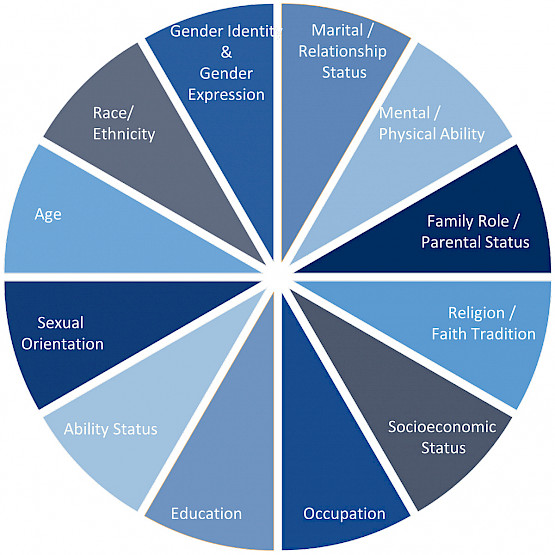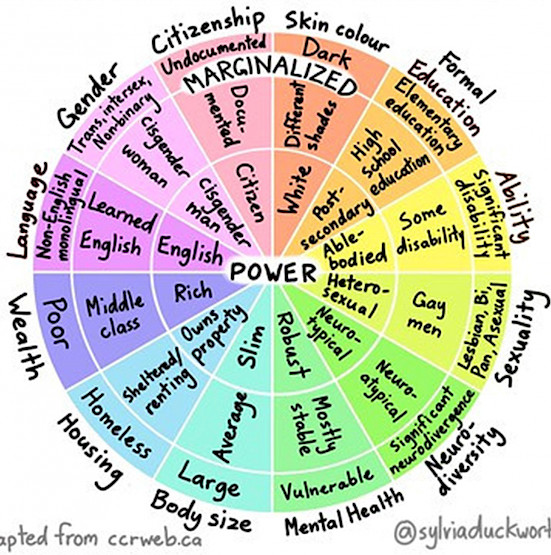Identity, Power & Privilege
Each one of us belongs to many identity groups, spanning from our race and gender to our socioeconomic status and physical ability. Students and advisors alike are impacted by their identities. By spending time reflecting on our own identities, and the way power and privilege benefits some identities over others, we can have greater understanding of ourselves and awareness of others’ experiences. The information and excersices below will help you reflect on how adviser and student identities can impact the student experince.
- Key Definitions
- The Identity Wheel
Key Definitions
Identity
The qualities, beliefs, personality traits, appearance and/or expression that characterize a person or group (Wikipedia)
Power
Power is unequally distributed globally and in U.S. society; some individuals or groups wield greater power than others, thereby allowing them greater access and control over resources. (Alberta Civil Liberties Research Center)
Privilege
Unearned social power accorded by the formal and informal institutions of society to ALL members of a dominant group (e.g. white privilege, male privilege, etc.). Privilege is usually invisible to those who have it because we’re taught not to see it, but nevertheless it puts them at an advantage over those who do not have it. (Colors of Resistance Archive)
The Identity Wheel
Below you will find exercises that will help you/your office reflect on indentity, power, and privlege in order to become more aware of our own identities and the experiences of others.
Exercise 1
Review the identity wheel below (adapted from The Courage Collective) and consider the various identity categories listed. Some of these identities may remain static in your life, and some may evolve or change over time. Context will also impact which of these identities are most salient or important to you.
Question: What are two identities that are important to you at this moment?

Exercise 2
Review this second wheel below (from Sylvia Duckworth) and reflect on how identity overlaps with power in our society. Remember that this is a non-exhaustive set of identities, and that you may have others to add. Take a look around the wheel and reflect on where your identities bring you closer to societal power, and where they take you farther away.
Question: Where do you find yourself closer or further away from the center?

Exercise 3
Remember that identity has impact, and both you and the students that you work with arrive at each conversation shaped by these experiences. Consider the many identities of students you work with and how those identities interact with power.
Question: In what ways does identity change a student’s experience at the University of Washington?

